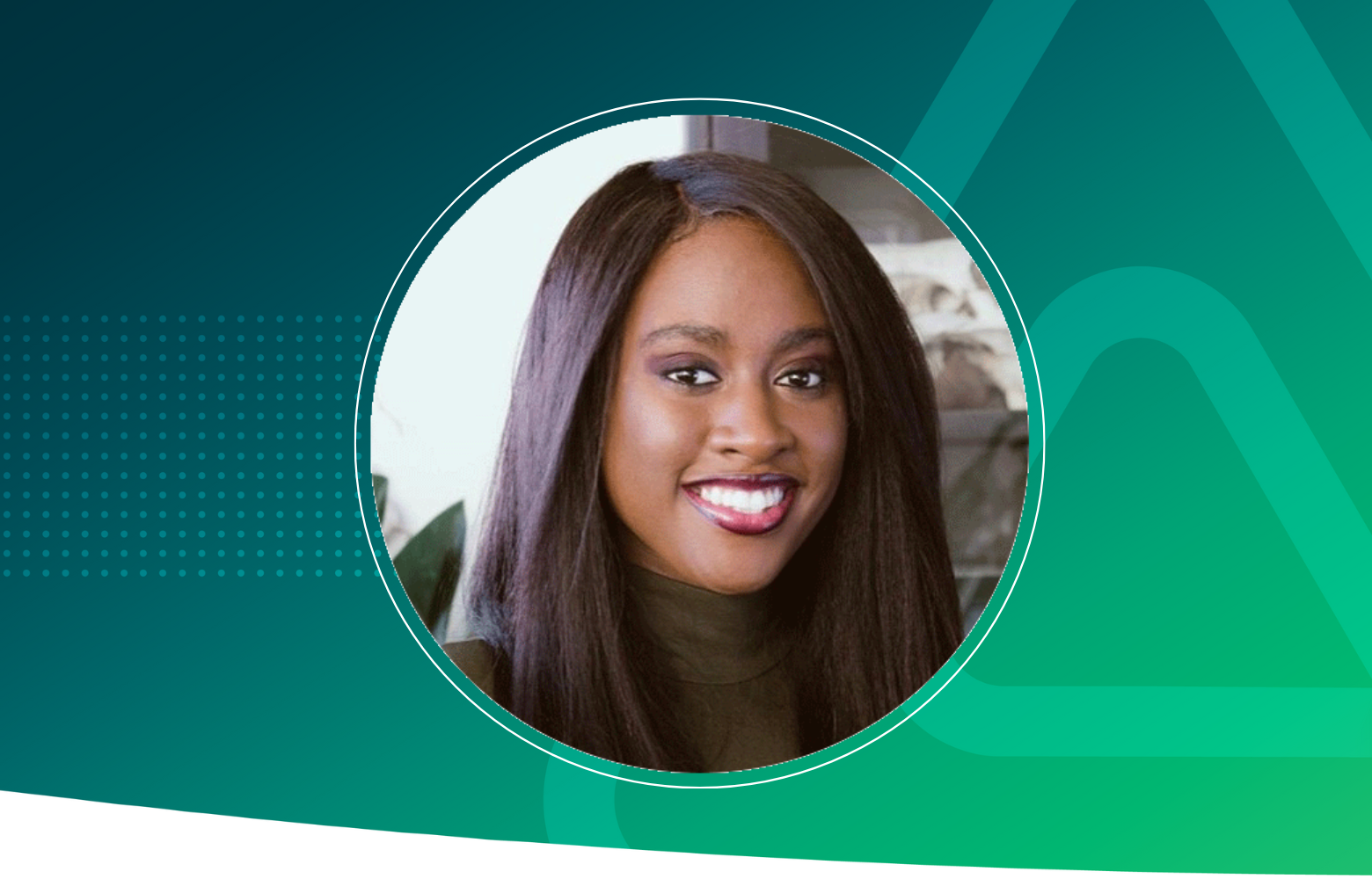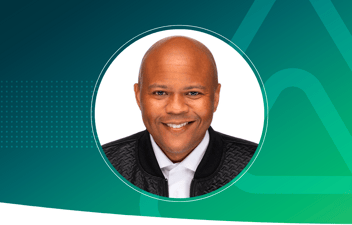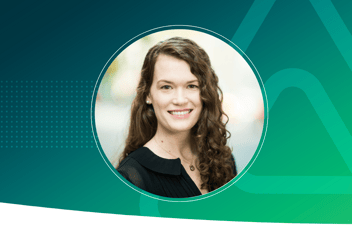Angel Franklin’s rapid rise to the C-suite, in just over ten years’ time too, is a remarkable feat. But she hopes one day, it won’t be out of the ordinary.
Franklin, a Black female millennial, grew her career from entry-level posts and directorships to eventually becoming the new Chief People Officer at Hinge, a role she landed on AboveBoard. Much of her success can be traced back to her willingness to think outside of the box, Franklin says.
“If there was an opportunity for me to learn and grow, and it required a little bit more different from me, I was willing to do that,” Franklin says, pointing to the fact that she moved her family eight times as she leveled up throughout her career.
“I've had a very rapid ascension into leadership because I was willing to think outside the box," Franklin says. "I think that if you're coming from a non-traditional background, you've got to have some non-traditional approaches until we make the norm. There's not one version of what normal looks like, we're just not there yet.”
Ahead, we chat with Franklin about making career moves, the importance of diversity and inclusion, and the connection between leadership and empathy.
To start, can you walk us through your career trajectory and how you landed your new role at Hinge?
I'm a career human resources professional. I’ve been in HR my whole career and have just steadily grown in terms of scope and responsibility. I’ve worked for Ernst & Young, the Kellogg Company, and Tesla. I’ve always been a part of large companies, and mostly at the center of excellence strategy type roles.
For the past five or so years—when I was at Tesla and then Cummins, the last place I worked before coming to Hinge—I started to become heavily focused on C-suite opportunities and Vice President, Section 16 Officer type opportunities. I began working even more closely with the board of directors in the scope of my HR capacity.
How has your approach to leadership changed as you’ve evolved in your career?
One thing interesting about me being at the C-suite level now is I had a very rapid trajectory from being an on-the-ground, entry-level employee to being in executive leadership. What I believe happened is I went from looking at that leadership role and style as something far away from me to embracing it—I'm living it, I'm breathing it, and I remember what it was like to be on the receiving end of things.
I lead in a way that's more centered on servant leadership. I'm very focused on the needs of that individual because, not very long ago, I was that person.
It's very fresh in my mind, the experiences I had, the things that made me feel safe, that made me afraid, how I got help or didn't get help because of those things. As a leader, I’m trying to remove all those barriers I experienced.
What was the process of landing your new job on AboveBoard like?
AboveBoard’s platform was really easy to use. I got “verified” pretty quickly as a Vice President and candidate that had board interface experience. I was approved onto the platform within days. As I started to express interest in different opportunities on AboveBoard, one cool thing I noticed was how the clients using the platform would talk to me about one opportunity and then also mention a few other things they had in the works that I could be a good fit for.
I don't remember if I initially reached out about Hinge. It may have been another tech company that I initially reached out to and that person was also working on the Hinge search. They said, “Oh yeah, you might be a good fit for this.” From initial contact to offer, it felt like the speed of light, maybe four or five weeks.
What was it that ultimately made Hinge the opportunity you wanted to take?
For me, it was absolutely the culture. I've been in a lot of different cultures. I'm very discerning about where I'm willing to go because I've seen so much, and I know really what I want. I think Hinge has a culture of authenticity, empathy, and intellect. I wanted the combination of those values. The environment is really smart, fast-paced, but also full of really caring and kind people. That’s why I ultimately chose to take this role.
How has diversity, equity, and inclusion been integrated into your role in the HR space? And how do you see it playing it out within your team?
As a point of reference, I'm a Black female millennial. In terms of dimensions, diversity, and intersectionality, I definitely feel like I'm across the board, particularly in the C-suite because there aren’t a lot of people at my age range, at least in the companies that I've worked in.
My own life experiences come into play in terms of getting access at the table and not knowing how to get a seat at the table. I noticed pretty early in my career at Ernst & Young that there were all these things people knew that I didn't know because I'm a first-generation college graduate and my family lived at the poverty line. From a socioeconomic standpoint, I overcame many things that I think a lot of underrepresented groups experience.
My personal experience of not knowing how to get yourself a seat at the table or get the door open for you is top of mind for me as a leader.
That’s why the connections on AboveBoard are so huge, particularly being able to see the opportunities, have access to them, and get your name out there. My personal network was only so big; it was just the network I had personally created. I didn't have the ripple effect of family or other people that knew folks. On top of that, I'm the first person to the table in my sphere.
What advice do you have for folks who want to have a career as fruitful as yours but may come from underrepresented backgrounds and may not have the toolkit and network of candidates from more traditional backgrounds?
If there was an opportunity for me to learn and grow, and it required a little bit more different from me, I was willing to do that. For example, I think I have moved my family eight times, which is kind of crazy. There are people who ask, how do you possibly do that? What I say is, I've capitalized on every opportunity I could really take.
I hope for the future that's not what people have to do when they're from an underrepresented group. I'm hoping we can start to build an environment where that's not what it takes to get there.
But while we're still trying to break through barriers, being willing and open to different opportunities and not artificially closing doors is something I think is really huge.
I've had a very rapid ascension into leadership because I was willing to think outside the box. I think that if you're coming from a non-traditional background, you've got to have some non-traditional approaches until we make the norm. There's not just one version of what normal looks like, we're just not there yet.









